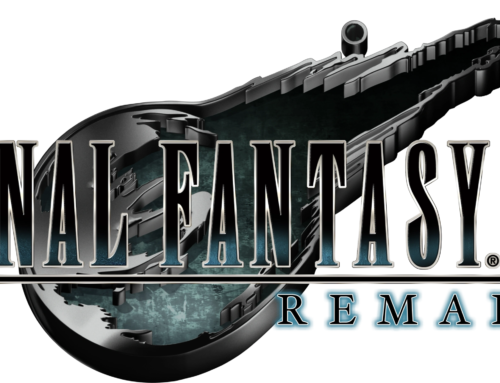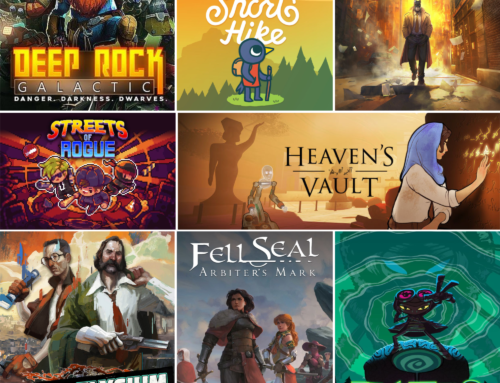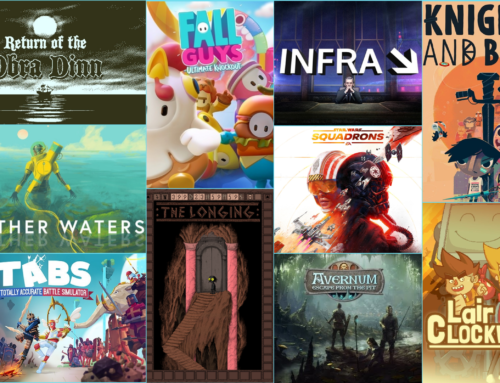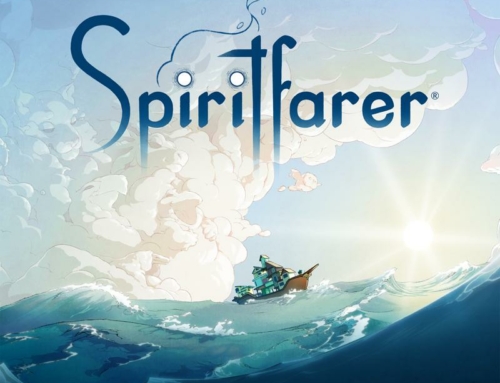A Monthly Letter Series
Welcome to Game Club, where once a month I discuss a game with the esteemed Joanna Tova Price. This week, we’re talking about two short games: Longest Night (2013/2015) and Lost Constellation (2014). Given that the games are short, free, and easy to play, you should play them before reading these letters. This is the first letter in a four-letter series. You can find Part Two here, Part Three here and Part Four here. Spoilers within.
Dear Joanna,
Before we get into the meat of the analysis, I want to take a moment to highlight the sphere these two titles emerge from. So far, we’ve looked at commercial indie games, distributed on major e-commerce platforms (namely, Steam and GOG). Longest Night and Lost Constellation hail from a different tradition, that of releasing free, short games onto the broader internet, which has been happening since at least the days of usenet. The hubs have changed over time, and the current biggest one – itch.io – typically employs a Pay-What-You-Want model rather than having strictly free downloads (though the whole point is that you can choose to pay nothing, so it’s largely similar), but overall it’s been a remarkably consistent, even-keeled part of the world of video games.
I spend most of my gaming time on larger commercial titles. This is partially because these games tend to dominate the conversation and enact the greatest influence on the medium,[1] and partially because there are certain experiences that aren’t achievable in a short timeframe or on a micro budget. And yet I have an inordinate fondness for the weirder, wilder world of free games, and regret not spending more time with them.
Longest Night and Lost Constellation exist in a weird middle space; they are both stand-alone side-stories set in the world of the upcoming (commercial) Night in the Woods, made as break projects during that game’s development. In this sense they serve as tantalizing glimpses of that game and drive our anticipation for it; but at the same time, they are very much their own works. Of Lost Constellation, the more fleshed-out of the two, the developer writes “This is a supplemental game, which is to say it’s not a demo or a preview of Night In The Woods. In some ways Lost Constellation is a lot like NITW, but in a lot of ways it’s not. It’s a tangent, a side-story, a way for us to explore a bit in a more off-the-cuff manner.”
I played both of these titles when they came out, and enjoyed returning to them. Longest Night is the smaller of the two; it’s a more-or-less straight storygame (the only game mechanic is drawing lines between stars) whose origins in a game jam are pretty apparent. But even the 2013 original (we played the 2015 remaster, which mostly just adds more dialog) is remarkably confident and well-formed. What makes it distinct is that it drops us into a conversation between four friends (with no introduction) as they celebrate an (unexplained) holiday by discussing the history of the constellations.
In the hands of a traditional video game this would be a lore-dump, a flimsy excuse for us to learn, at length, the entire history of this world, read an encyclopedia article on its religeous beliefs, etc. But here, nobody plays to the audience; we are invisible observers, and much goes unexplained because the characters reference a shared history that we are ignorant of. Some constellations spur lengthy stories; others inside jokes we are not privy to. This is rare in video games, which tend to go out of their way to make the player omniscient.
The dialog is also remarkable in how successfully it channels young adults (roughly college age, from what we can gather). A lot of fiction, including pretty much all video games, tends to place characters into the categories of ‘child/teen/adult,’ and while the emotional journeys of young adults are frequently portrayed, their distinct voice is not; one of the problems with expository dialog is that all ages and identities run together.
It’s a 15 minute game at most, so without the language to fully appreciate its art style (it’s lovely, but I have no idea what’s you call the style) I don’t have a lot more to say – but maybe you can think of something to add?
Lost Constellation is the more fully-formed game, and would be entirely satisfactory even if there was no future game that might build on some of its lore and themes. It distinguishes itself right away by using the perspective and character controls of platformers without any actual platforming; it’s a light adventure game with puzzles more focused on exploration than “use X on Y.” The two things I most enjoy in video games are storytelling and exploration, but I quickly tire of games that focus on one exclusively. The charm of Lost Constellation is its focus on narrative-dense exploration. There are no lore-entries or (god forbid) audio logs scattered around, just characters to talk to, and they spend much of the time telling you about the world; their dialog informs your exploration, and your exploration gives you information you can take back to characters. This is a rather reductive way of looking at it that skips over just how magical the whole thing is (the wind and snow alone is worth praise), but it’s worth pointing given just how many games fail to get this balance right. We’ve both played text-dump visual novels, and games that are exploration absent story generally only appeal to a niche audience (as we were recently reminded when a bunch of people got angry and disappointed that there wasn’t more context to No Man’s Sky’s planet-charting).
Also: both games focus a lot on religion, faith, myth, and how ‘modern people’ (be they cynical millennials, in Longest Night, or scientists, as in Lost Constellation) navigate these intangibles. Again, I’ve played these games before, so before I say anything on that topic I’d love to hear your thoughts.
More specifically: what in these games surprised you? How do they fit into the larger picture of video games? How does their short length play to their strengths (or weaknesses?) And what is it about these games that makes them feel so…warm-hearted in an often cold, mechanistic medium?
Looking forward to your thoughts,
Dylan
P.S. I hope you took pictures of your snowmen! If so, please include them (I forgot to get screens for Longest Night, but have lots for Lost Constellation).
- [1]It’s a weird feature of the gaming press and the gaming public (it’s not clear who is leading whom) that they largely ignore free games. The last few years has seen a number of instances where free games or mods were ‘spruced up’ and released as commercial products, subsequently getting 100x the player base and coverage of their free version, despite the obvious fact that ‘free’ is a much lower barrier of entry. Dear Esther and The Stanley Parable are two such titles.↩







[…] [Author’s note: this is in reply to Dylan’s letter.] […]
[…] them before reading these letters. This is the third etter in a four-letter series. You can find Part One here, Part Two here, and Part Four here. Spoilers […]
[…] is the third in a four part series, as follows: 1) Dylan’s opening letter. 2) My reply to Dylan’s first letter. 3) Dylan’s reply 4) This post, finishing the […]